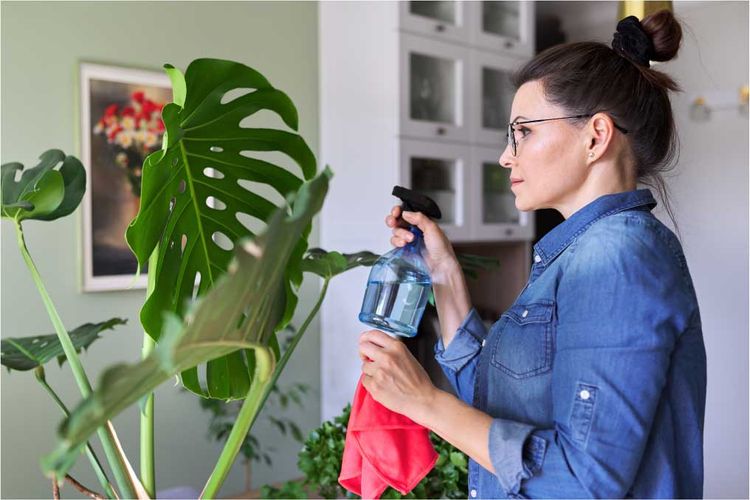The Ultimate Guide to Caring for Indoor Plants Dubai

Make your indoor plants collection thrive in Dubai with our complete guide to plant care. Give your indoor plants the best chance for growth and longevity with our step-by-step care instructions.
Choosing the right plants:
When selecting indoor plants for Dubai home, it's essential to consider the climate and the amount of natural light available. Opt for plants that thrive in humid conditions and can tolerate direct sunlight, such as rubber plant indoor, pothos, and snake plants.
Picking the right pots for indoor plants:
Select pots that provide adequate drainage to prevent waterlogging, which can cause root rot. Plastic, terracotta, and ceramic plant pots are ideal for indoor plants. Make sure the pot size is appropriate for the plant's size.
Soil selection:
Choose a soil mix specifically formulated for indoor plants dubai, or create your own by combining peat moss, vermiculite, and perlite. Avoid using garden soil, as it's too dense and can suffocate the roots.
Watering:
In Dubai's dry climate, it's essential to water your indoor plants frequently. However, don't overwater them, as this can lead to root rot. Water your plants thoroughly but allow the soil to dry out slightly between watering.
Humidity:
Most indoor plants in Dubai require high humidity levels. You can increase humidity by placing a tray of water near the plants or using a humidifier.
Lighting:
Most indoor plants require bright, indirect sunlight. However, in Dubai, direct sunlight can be too intense and can scorch the leaves. Place your plants in a spot that receives plenty of light but avoid placing them in direct sunlight.
Fertilizing:
Indoor potted plants require regular fertilization to thrive. Use a balanced, water-soluble fertilizer every four to six weeks during the growing season.
Pruning:
Regular pruning helps keep indoor plants healthy and encourages new growth. Remove any dead or yellowing leaves and trim back any overgrown stems.
Pest control:
Indoor plants are susceptible to pests such as spider mites, mealybugs, and scale insects. Check your plants regularly for signs of infestation, and treat any problems promptly with an insecticidal soap or neem oil.
Air circulation:
Good air circulation is essential for indoor plants, as it helps prevent disease and pests. Open windows and doors regularly to allow fresh air to circulate, or use a fan to keep the air moving.
Temperature:
Most indoor plants prefer temperatures between 18°C and 24°C. However, some plants, such as cacti and succulents, can tolerate higher temperatures.
Repotting:
Indoor plants require repotting every two to three years. Choose a pot that's one size larger than the current pot, and use fresh soil to promote healthy growth.
Types of indoor plants to consider:
Some indoor plants that are ideal for Dubai's climate include:
a. Rubber plants indoor: These plants can tolerate direct sunlight and are easy to care for.
b. Pothos plants: These plants are low maintenance and can grow in low light conditions.
c. Snake plants: These plants are hardy and can tolerate a range of light conditions, including low light.
d. Chinese evergreen: This plant thrives in high humidity and can tolerate low light conditions.
e. Peace lily Plant: This plant requires regular watering and prefers bright, indirect sunlight.
f. ZZ plant: This plant is highly resilient and can tolerate low light conditions.
In Conclusion, indoor plants dubai climate as long as you provide them with the ideal growing conditions. Choose plants that can tolerate high humidity and direct sunlight, use the right soil mix, water them regularly, provide adequate lighting and fertilization, and keep an eye out for pests control and diseases. With proper
Our Recent
Blog Posts
A new approach for us to invite a life surrounded by flowers
